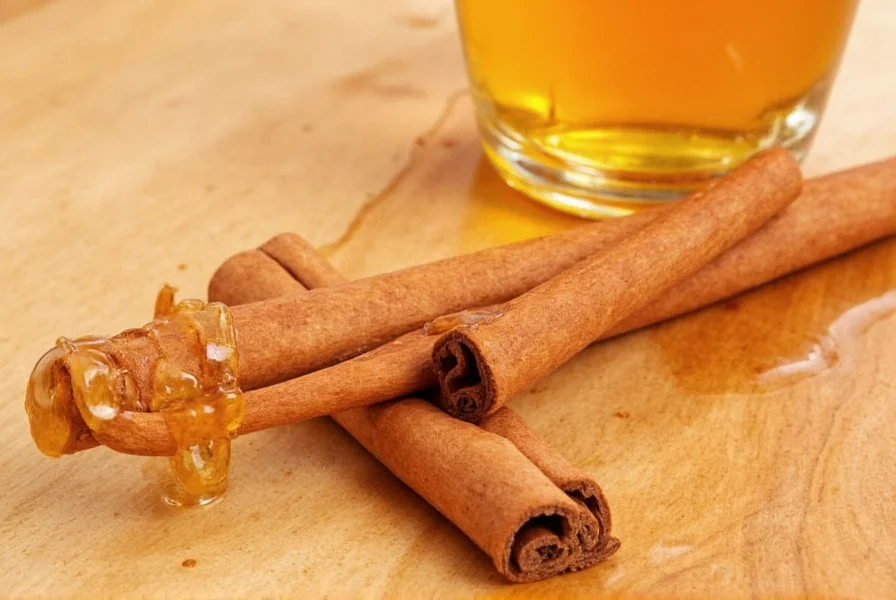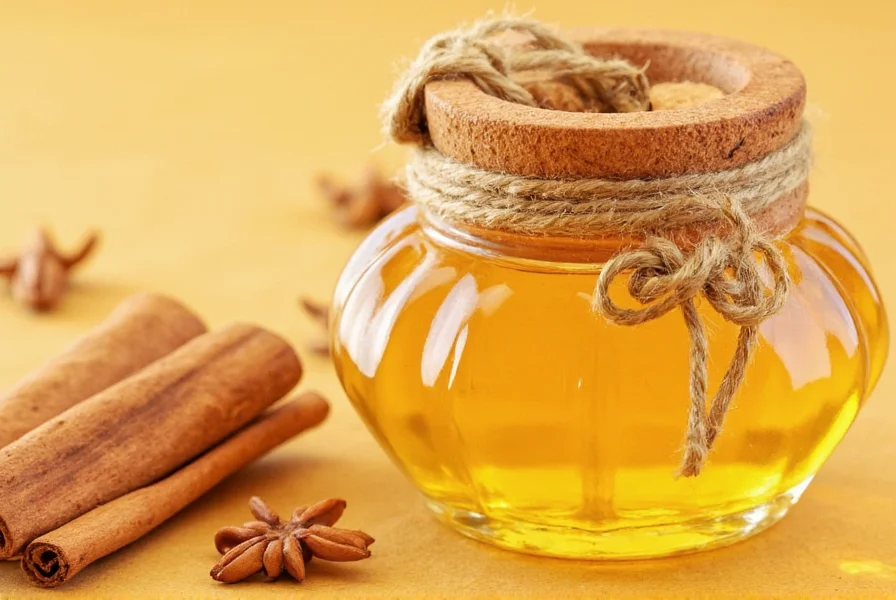When exploring natural remedies, it's essential to separate evidence-based benefits from popular myths. Honey and cinnamon have been used in traditional medicine for centuries, but modern science provides a more nuanced understanding of their actual health effects. This article examines what rigorous research reveals about these common pantry staples, focusing on verified benefits while addressing common misconceptions.
Proven Health Benefits of Honey
Honey isn't just nature's sweetener—it contains bioactive compounds with documented therapeutic properties. Medical-grade honey, particularly Manuka honey, has earned recognition in clinical settings for specific applications.
Wound Healing Properties
Multiple clinical studies confirm honey's effectiveness for certain types of wound care. The FDA has approved medical-grade honey products for wound treatment due to their:
- Natural antibacterial properties that combat infection
- Ability to maintain a moist healing environment
- Capacity to reduce inflammation in wound tissue
- Promotion of tissue regeneration
Research published in the Journal of Wound Care demonstrates that medical honey accelerates healing for partial-thickness burns and infected post-surgical wounds compared to conventional treatments.
Cough and Sore Throat Relief
For children over one year old, honey provides superior cough relief compared to many over-the-counter medications. A comprehensive review in JAMA Pediatrics found honey significantly reduced cough frequency and severity, particularly at night. The thick consistency coats irritated throat tissues while its antioxidant compounds may reduce inflammation.
| Honey Benefit | Scientific Support Level | Recommended Usage |
|---|---|---|
| Wound healing | Strong clinical evidence | Medical-grade honey under professional supervision |
| Cough suppression | Strong evidence for children >1 year | 1/2 to 1 teaspoon as needed |
| Antioxidant properties | Moderate evidence | As part of balanced diet |
Evidence-Based Benefits of Cinnamon
Cinnamon contains cinnamaldehyde and other compounds responsible for its distinctive flavor and potential health effects. Research indicates several evidence-supported benefits:
Blood Sugar Regulation
Several clinical trials suggest cinnamon may improve insulin sensitivity and lower fasting blood glucose levels. A meta-analysis in the Journal of the Academy of Nutrition and Dietetics concluded that cinnamon supplementation (1-6 grams daily) significantly reduced fasting blood glucose in people with type 2 diabetes. However, the effect size was modest, and cinnamon shouldn't replace prescribed diabetes medications.
Antioxidant and Anti-inflammatory Effects
Cinnamon ranks among the most antioxidant-rich spices. These compounds may help reduce oxidative stress markers in the body. Research in Oxidative Medicine and Cellular Longevity indicates cinnamon's anti-inflammatory properties could potentially benefit conditions involving chronic inflammation, though more human studies are needed.
Combined Honey and Cinnamon: What Science Says
The popular combination of honey and cinnamon has generated numerous health claims, but scientific support varies significantly:
- Immune support: Both contain antioxidants that support overall health, but no research shows the combination specifically boosts immunity beyond their individual effects.
- Joint pain relief: Limited animal studies suggest anti-inflammatory effects, but human evidence for arthritis treatment is lacking.
- Heart health: Some research indicates both may positively affect cholesterol levels, but studies on the combined effect are minimal.
A systematic review published in Nutrients concluded that while both substances have individual health benefits, claims about synergistic effects when combined generally lack rigorous scientific validation.
Common Misconceptions and Limitations
Despite widespread claims online, scientific evidence doesn't support several popular beliefs about honey and cinnamon:
- Weight loss miracle: No high-quality studies demonstrate significant weight loss from honey and cinnamon consumption. Any effect would likely come from replacing less healthy sweeteners.
- Cancer treatment: While test-tube studies show some anti-cancer properties, no human evidence supports using honey and cinnamon as cancer treatments.
- Antibiotic replacement: Neither should replace prescribed antibiotics for bacterial infections.
It's crucial to understand that most research on these substances uses concentrated extracts or specific medical-grade preparations, not the small amounts typically added to food.

Safe Usage Guidelines
To incorporate honey and cinnamon safely into your routine:
- Choose raw, unprocessed honey for maximum potential benefits
- Opt for Ceylon cinnamon when consuming regularly, as it contains less coumarin than Cassia varieties
- Limit honey intake if managing blood sugar—despite potential benefits, it still affects glucose levels
- Never give honey to infants under one year due to botulism risk
- Consult your healthcare provider before using these as complementary approaches for medical conditions
Practical Applications
For those interested in incorporating these ingredients thoughtfully:
- Add honey to herbal tea for soothing sore throats
- Use cinnamon as a sugar substitute in oatmeal or coffee
- Apply medical-grade honey to minor cuts (after cleaning) following healthcare provider guidance
- Consider honey and cinnamon as part of an overall healthy diet, not standalone treatments
Remember that both honey and cinnamon work best as components of a balanced diet and healthy lifestyle, not as miracle cures for complex health issues.

Conclusion
Honey and cinnamon offer genuine health benefits supported by scientific research, particularly for wound care, cough suppression, and potential blood sugar regulation. However, many popular claims about their combined effects lack strong evidence. These natural substances work best as complementary elements within a comprehensive approach to health, not as replacements for medical treatment. When considering honey and cinnamon for specific health concerns, consult healthcare professionals and rely on evidence-based information rather than anecdotal claims.
Frequently Asked Questions
Does honey and cinnamon really help with weight loss?
No strong scientific evidence supports honey and cinnamon as effective weight loss solutions. While replacing sugar with this combination might reduce calorie intake slightly, studies don't show significant weight loss effects from consuming them specifically. Sustainable weight management requires comprehensive dietary changes and physical activity.
Can honey and cinnamon lower blood sugar effectively?
Cinnamon shows modest potential for improving blood sugar control in people with type 2 diabetes, but honey actually raises blood glucose. The combination doesn't negate honey's sugar content. If managing diabetes, consult your healthcare provider before making dietary changes—never replace prescribed medications with natural remedies.
What's the best type of cinnamon to use for health benefits?
Ceylon cinnamon contains significantly less coumarin (a compound that may affect liver function in large amounts) than the more common Cassia variety. For regular consumption, Ceylon is generally preferred for safety, though both types offer similar antioxidant benefits. Check product labels as most supermarket cinnamon is Cassia.
Are there any risks to consuming honey and cinnamon regularly?
Excessive cinnamon consumption (particularly Cassia) may lead to coumarin buildup affecting liver health. Honey contains sugar and should be limited in diabetes management. Both are generally safe in culinary amounts, but consult your healthcare provider if using them therapeutically or if you have existing health conditions. Never give honey to infants under one year.











 浙公网安备
33010002000092号
浙公网安备
33010002000092号 浙B2-20120091-4
浙B2-20120091-4